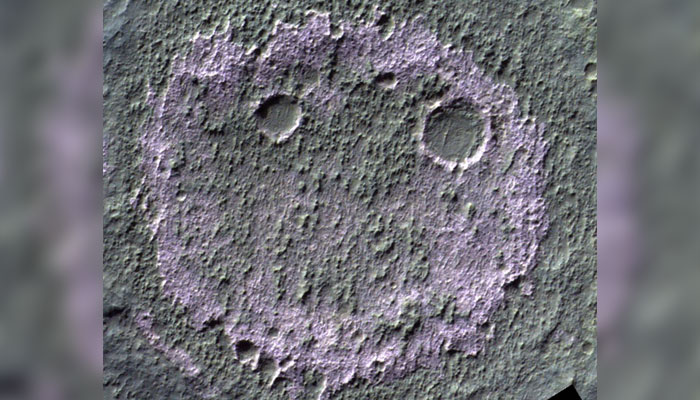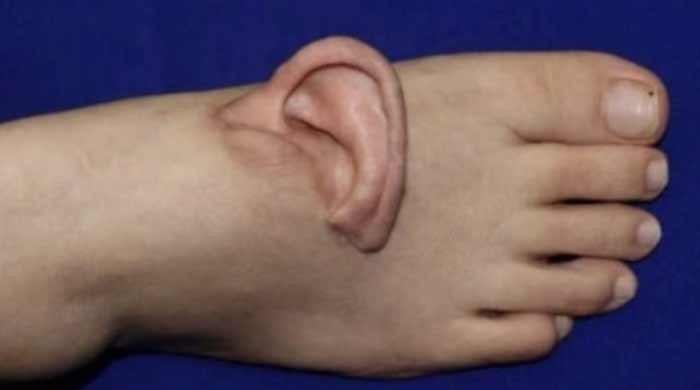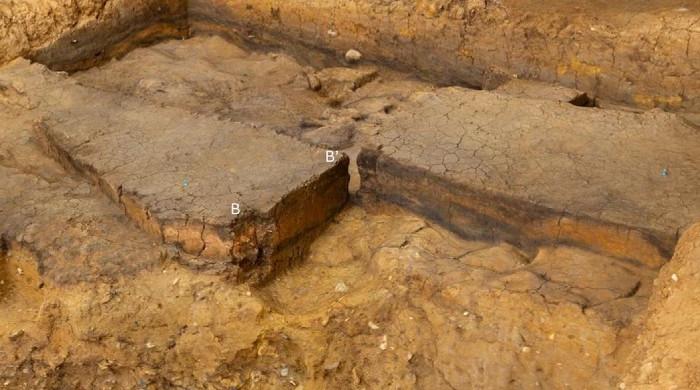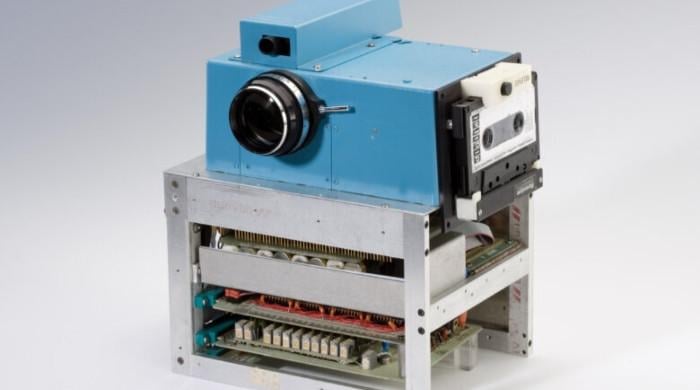European Space Agency spots giant smiley face on Mars
Giant smiley face on Mars intrigues scientists who believe it to be remnant of Red Planet's ancient life forms
September 09, 2024

Scientists at the European Space Agency (ESA) were intrigued after they recently spotted a giant smiley face on the surface of Mars, sharing the unique astronomical discovery with the world.
Taking to Instagram, the ESA posted a series of images showing salt deposits on the Red Planet, which the scientists believe to be the remnants of the planet's ancient life forms.
One of the salt deposits happened to be shaped like a smiley face.
But why are scientists so intrigued by these deposits.
According to NDTV, scientists suggested that some of these salt deposits could potentially house hardy microbes from Mars' teeming lakes and rivers that vanished billions of years ago, during a catastrophic global freeze.
The ESA's Martian satellite, the "ExoMars Trace Gas Orbiter", which is on a quest to uncover signs of life on the Red Planet, captured the striking images of these chloride salt deposits on Mars' arid surface.
These salt deposits may offer insights into the planet's past climate and potential habitability, according to the ESA scientists.
The study was recently published in the journal Scientific Data.
Valentin Bickel, a planetary scientist at the University of Bern in Switzerland who led research, said: "A cold era began when Mars lost its magnetic field and could no longer hold its atmosphere, leading to water evaporating, freezing, or becoming trapped within the surface.
"As the water disappeared over time, it left mineral fingerprints on the surface. Very salty waters could have become a haven for life, a beacon for habitable places on Mars. High concentrations of salt allow water to remain liquid at temperatures as low as minus 40°C."
The images by the ESA have garnered several thousand likes on Instagram with space enthusiasts reacting in the comments section.
One user wrote: "That's so beautiful."
Another said: "With this face shape, we have to wait for ridiculous theories."
A third added: "It would be great if there were some scale references to get the size of these craters."









